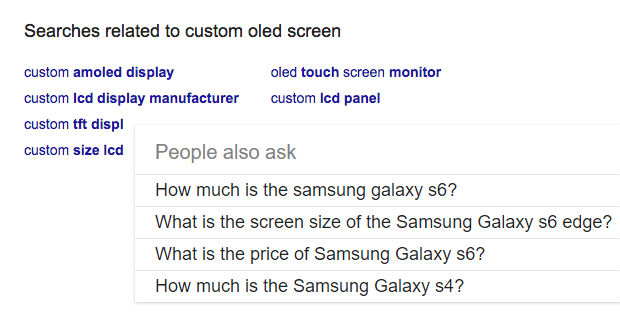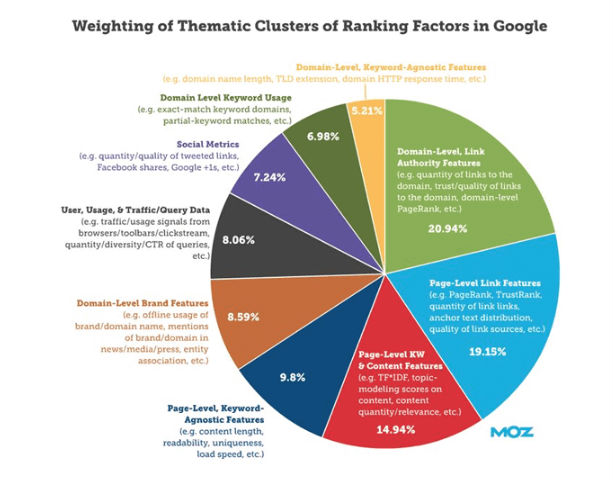Understanding the Essentials of SEO
The Essentials of SEO Marketing
If you’re relatively new to SEO marketing you’ve probably found that it has it’s share of misconceptions and myths, like just about everything. In the following section we’ll clear up some of the key misconceptions that can have a dramatic impact on your success.
You Only Need to Do SEO Once
The Misconception
Maybe you’ve tried SEO once without any real success, so that’s it for SEO. Maybe you tried it and you were happy, and you’re sure that will take care of you needs.
The Reality
In the first case you didn’t managed to see any wins, but SEO takes time. This is especially true if your website is new, or it’s your first real attempt at SEO. One-time successful SEO campaigns will not stand the test of time… Without continuous improvement and maintenance everything falls into degradation. Websites naturally face challenges over time:
- Link rotting - internal and external links will break.
- Outdated content - shocking, but true, content needs to be maintained.
- Updates to algorithms - this is always evolving, like those impacting mobile ranking.
The Solution
Use Google Analytics to check the engagement factors (like bounce rate, CTR, session duration, new visitors, number of visited pages, etc.) Lower than average values can mean that users are not happy with their experience of your website, or they CANNOT even find it. Monitor your rankings regularly. For most websites this can be done monthly, but for others that engage in ecommerce, this may need to be done more frequently. If you’re tracking dozens of search terms you should consider finding a rank tracking tool to automate the process. One of the nice things about using a tool like this is the reporting.
Keywords Don’t Matter Anymore
The Misconception
After Google released the Hummingbird update in 2013 on-page SEO, and mainly keywords research, took an incredible hit. The SEO community seemed to hit the panic button, and even jumped to some unfounded conclusion that there was no sense in keyword targeting anymore. According to Search Engine Land: "Hummingbird is paying more attention to each word in a query, ensuring that the whole query — the whole sentence or conversation or meaning — is taken into account, rather than particular words." In addition to Hummingbird, Knowledge Graph and RankBrain, delivered two more blows to keyword research which lead to less focus on individual terms within a search query, and more on the nuances in its meaning.
The Reality
Google never said that keywords were no longer important. SEOs themselves pushed the panic button and made some extreme conclusions. It makes perfect sense that search engine algorithms get more and more sophisticated with each update. Updates like Hummingbird and RankBrain changed the approach to keyword research, but not it’s importance. One of the more notable changes for anyone engaging in SEO marketing is that you don’t have to worry about keyword ratios/density, but instead you need to focus on understanding searcher intent behind the queries. So keywords are important, but you will have to think for a reason beyond a particular keyword and create content to meet this need.
The Solution
Keywords that are common, or quite broad to your business niche/market place will naturally occur in your content, you shouldn’t be intensively investing resources trying to rank for those terms. A term like “pmoled manufacturer”, or “retirement home” is going to be very competitive, and the traffic they generate is generally less qualified, or at the very beginning stages of the marketing funnel. Your keyword research should focus on long-tail keywords because they are typically more closely related to a user’s intention. Researching long-tail terms can be relatively easy by just using Google. Search for a term and then check out the different “suggestions” that Google will make. Look at “Searches related to” and “People also ask” for some great ideas for longtail keywords related to your the primary search term you started with. 
Beware of Link Building
The Misconception
Link building will lead to disaster and Google will penalize you. This likely got started when Google's John Mueller said that link building is something he'd "try to avoid." Then there is the Google Webmaster quality guidelines: "Any links intended to manipulate PageRank or a site's ranking in Google search results may be considered part of a link scheme and a violation of Google's Webmaster Guidelines."
The Reality
Your link profile needs to grow naturally over time. Search engines heavily use link authority in their algorithms.  Note: Weighting the Clusters of Ranking Factors in Google's Algorithm by Rand Fishkin
Note: Weighting the Clusters of Ranking Factors in Google's Algorithm by Rand Fishkin
The Solution
Natural link building is a way to build up your website authority, and it is a marketing practice successfully tested with time. For example, you write a stellar piece of content that is unique, and useful, and another website links to it because they want to share it with their audience. That is legitimate link building. What you should not do is build millions of useless links to rank higher overnight. If you act like that, you will certainly be penalized.
SEO is NOT Dead
SEO isn’t even the un-dead. Think of SEO marketing as a shapeshifter. There are so many developments in the field: mobile, voice, and semantic search or some of the latest evolutions. If you think about, the last time you wanted to find something online using a search engine, how did that start? Likely, with you saying something, or typing keywords into a text box. These 3 essential SEO misconceptions are important because they are still extremely relevant to success. SEO marketing is a gigantic field of established and new practices, and it’s foolish to say that it is dead. For certain if your SEO marketing plan holds on to outdated techniques that were once effective, but now punishable, then it’s you plan that is dead...not SEO.




